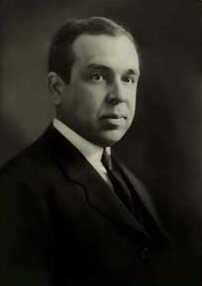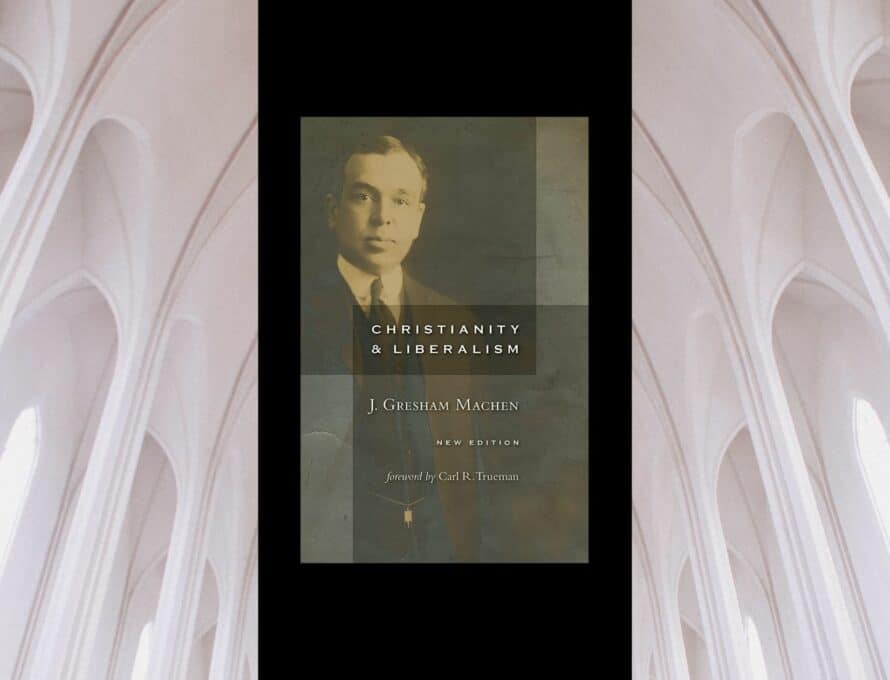JEFFERSON CITY – Christian classics are books that masterfully articulate and apply Scripture to the pressing issues of the day. One of the most important books of the 20th century, Christianity and Liberalism by J. Gresham Machen (1881-1937) is such a book. In 1923, while a professor at Princeton Theological Seminary, Machen addressed the growing tide in evangelicalism towards theological liberalism. Now, 100 years later, evangelicals would be wise to listen to the warnings in Christianity and Liberalism that still apply today.

J. Gresham Machen, author of the theological classic, “Christianity and Liberalism.”
Terry Chrisope, former professor of history and Bible at Missouri Baptist University (MBU) has studied Machen for years and has written a book on his life and ministry. Chrisope notes that Machen’s focus was contesting against theological liberalism, which was essentially a form of naturalism. “Theological liberalism was the name of the movement within the churches which downplayed or denied biblical supernaturalism and resulted in the dilution or rejection of historic Christian doctrine. Machen discerned these facts.”
Turning specifically to Christianity and Liberalism, Chrisope describes Machen’s central argument of the book as “liberal Protestantism had so far strayed from the historic positions of the church that it could no longer be seen as a variety of Christianity, but constituted a different religion altogether.”
Though Machen’s book was addressing theological liberalism of the 1920s, now at its 100th anniversary, its words are needed more than ever. The threat to abandon historical, Christian orthodoxy is just as prevalent today as it was a century ago. Machen’s willingness to stand firm in biblical fidelity against cultural fads is a clarion call to all biblically faithful Christians of the 21st century.
Theological liberalism is still as prevalent today as it was in Machen’s day. The question of theological liberalism is essentially the reliability of Scripture. The theological attack of the 1920s as well as the 2020s is whether Scripture is true in all aspects of what it says. When asked whether Christianity and Liberalism is still applicable today, Chrisope unwaveringly affirmed the continued relevance of Machen’s classic.
“I think that Machen would today address the continuing need to beware the perennial temptation to dilute biblical teaching in general, [such as the] ordination of women, softness toward the sexual revolution and alignment with the ‘social justice’ movement. [These] seem to be current points of entry for theological liberalism into evangelical life and churches.”
Current professor of Bible at MBU, Curtis McClain, agrees on the continued relevance of Machen’s classic for Christians today. McClain is concerned that churches today, just like in Machen’s day, are “rejecting the supernatural and the metaphysical…[while also] hesitating to see the spiritual battles going on around us. This comes across not as a rejection of Bible claims, but as a failure to incorporate biblical teaching in our own perspectives.”
According to McClain, the answer to modern theological liberalism is a return to the essentials of the Christian faith. “Elevate the eternal over the temporal; use the whole gospel; bow to the Father’s plan for our lives and times; and read and study the best old theologians.”
J. Gresham Machen contended for the faith in the 20th century, and the charge to biblical fidelity remains for 21st century Christians. Though the shape of theological liberalism may have changed, its substance has not. The mark of faithful churches will be to hold unwaveringly to the full counsel of God’s Word. For those striving to be faithful, turn to an old Christian classic that’s just as relevant today as it was 100 years ago.

